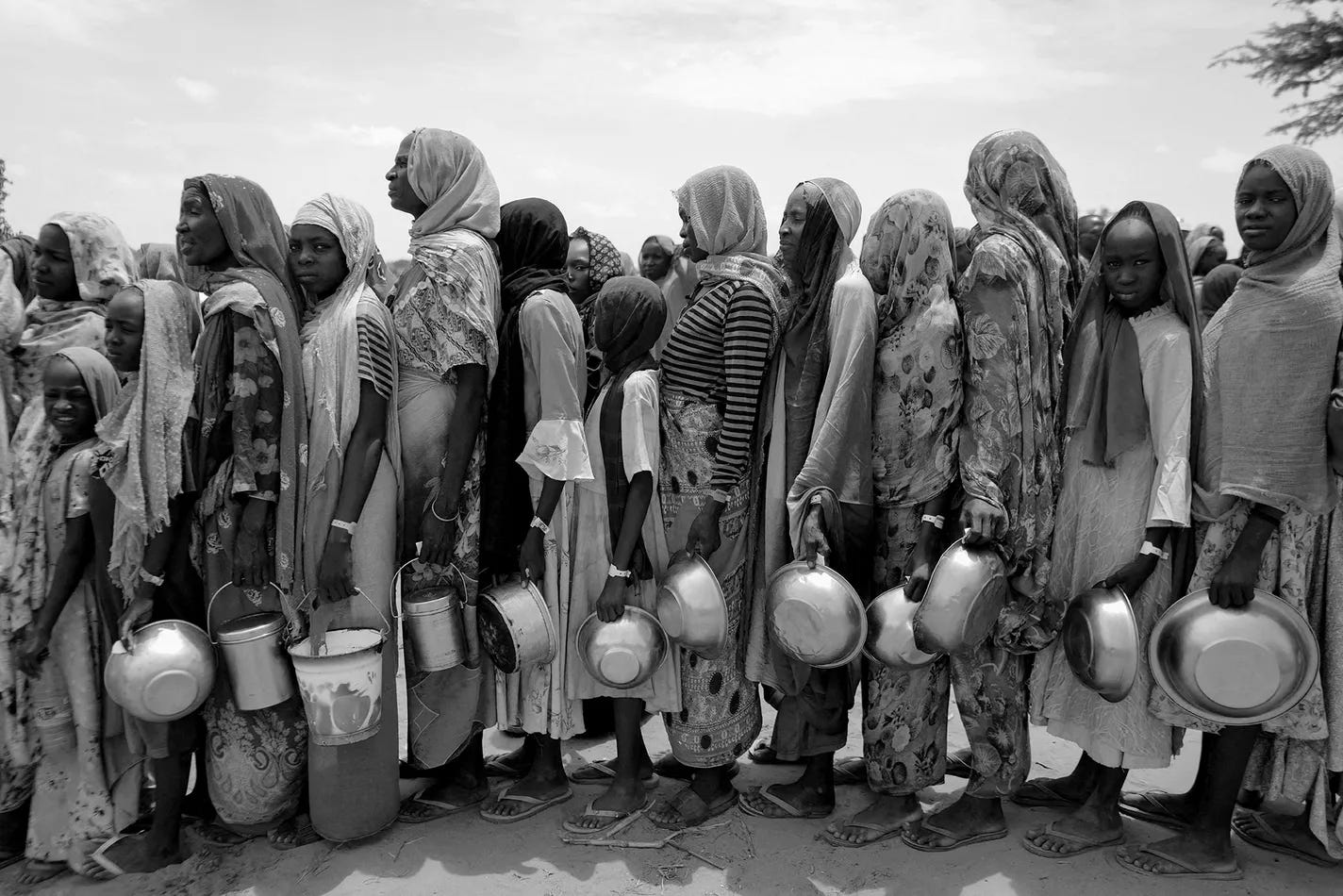Forgotten Genocide: Sudan's Unfolding Humanitarian Crisis
As the world watches other conflicts, Sudan faces a devastating humanitarian crisis, with millions displaced and a potential genocide on the horizon.
The Facts:
Sudan, Africa's third-largest country, has been ravaged by coups, civil war, and conflict for much of its history since independence in 1956. The most recent conflict erupted in 2023 due to a power struggle between the Sudanese Armed Forces (SAF) and the Rapid Support Forces (RSF), a paramilitary group. Both armies, which previously answered to the same dictator until his deposition in 2019, are now fighting for control of the country.
The violence has been devastating, with both sides accused of looting, raping, and killing civilians, as well as restricting humanitarian aid. Some regions are completely cut off from basic supplies, and residents in the hardest-hit areas are forced to resort to eating leaves and seeds to survive.
The RSF faces credible allegations of ethnic cleansing against black Africans in the Darfur region. The conflict has resulted in a splintering of Sudan into a messy patchwork of competing militias and rebel movements, with the capital, Khartoum, dominated by the RSF, and the SAF controlling most of the agricultural lands in the east and the oil terminal in Port Sudan.
Arms and mercenaries are pouring in across Sudan's borders, further fueling the chaos. In the besieged city of El Fasher, the last major urban center in Darfur still under the control of the SAF, civilians are being targeted based on their ethnicity, raising concerns about a possible genocide.
The UN Special Adviser on the Prevention of Genocide, Alice Wairimu Nderitu, has warned that the situation in El Fasher is unfolding to a "Rwanda-like" genocide, and that the increased hostilities have opened a "really alarming chapter" in the conflict.
The violence has forced millions of Sudanese from their homes, making Sudan the world's biggest crisis of internal displacement, with more than 9 million people displaced, over half of whom are under the age of 18. This influx of displaced people is putting pressure on already impoverished areas, with some localities experiencing a population surge of at least 50% in the past year.
The conflict has also had a devastating impact on Sudan's economy, with shops and factories closing, farmland lying fallow, and a UN report predicting an economic contraction twice as severe as those in Syria and Yemen over the past decade. The fallout from the conflict could also spread beyond Sudan's borders, as the country straddles the Nile, a vital resource for Egypt, and has ports close to the strategic Horn of Africa region.
Despite the scale of the crisis, Sudan's nightmare has received little attention in the media, with news coverage peaking at the start of the conflict in April 2023 and since averaging just 600 articles per month, a stark contrast to the extensive coverage of the conflicts in Ukraine and Gaza.
The View:
It is truly a travesty that the world has turned a blind eye to the horrific events unfolding in Sudan, a country torn apart by a brutal civil war and on the verge of a catastrophic humanitarian crisis.
As the global community fixates on the conflicts in Ukraine and Gaza, the people of Sudan are left to suffer in utter despair, their cries for help drowned out by the din of other crises. It is utterly unacceptable that the world has allowed this situation to deteriorate to such a shocking degree.
The scale of the violence, with both sides accused of unspeakable atrocities against civilians, is utterly appalling. The fact that the Rapid Support Forces are allegedly engaged in ethnic cleansing against black Africans in Darfur is particularly alarming and evokes chilling echoes of the Rwandan genocide.
It is deeply disturbing to know that the UN Special Adviser warns that a "Rwanda-like" genocide could be unfolding in El Fasher, the last major urban center in Darfur under the control of the Sudanese army. The targeted attacks on civilians based on their ethnicity are an abhorrent violation of basic human rights, and the world must not stand idly by as another genocide takes place.
It is troubling to know that there is a massive displacement of Sudanese citizens, with over 9 million people forced from their homes, more than half of whom are children. The strain this is placing on already impoverished areas is unacceptable, and the international community has a moral obligation to provide urgent humanitarian aid and support to these desperate people.
It absolutely outrageous that Sudan's economic collapse has received so little attention, with the predicted contraction being twice as severe as the crises of Syria and Yemen over the last decade.
The consequences of this conflict, both within Sudan and beyond its borders, are too grave to be neglected. It is time for the global community to step up, lend its voice, and take concrete steps to bring an end to this forgotten war.
TLDR:
Sudan, Africa's third-largest country, has been ravaged by coups, civil war, and conflict since independence in 1956.
The current conflict erupted in 2023 due to a power struggle between the Sudanese Armed Forces (SAF) and the Rapid Support Forces (RSF), a paramilitary group.
Both sides are accused of looting, raping, and killing civilians, as well as restricting humanitarian aid, leading to a severe humanitarian crisis.
The RSF faces credible allegations of ethnic cleansing against black Africans in the Darfur region, and the UN warns of a possible "Rwanda-like" genocide in the city of El Fasher.
Over 9 million Sudanese, more than half of whom are under 18, have been displaced, putting immense pressure on already impoverished areas.
Sudan's economy has collapsed, with shops and factories closing, farmland lying fallow, and a predicted economic contraction twice as severe as those in Syria and Yemen.
Despite the scale of the crisis, Sudan's nightmare has received little attention in the media, with news coverage peaking at the start of the conflict and since averaging just 600 articles per month.





